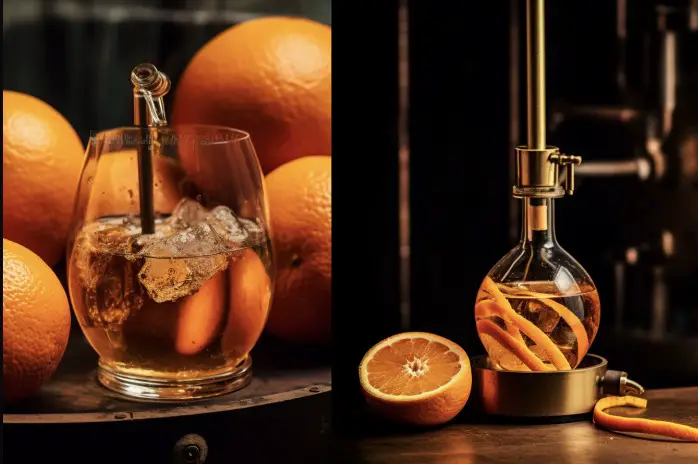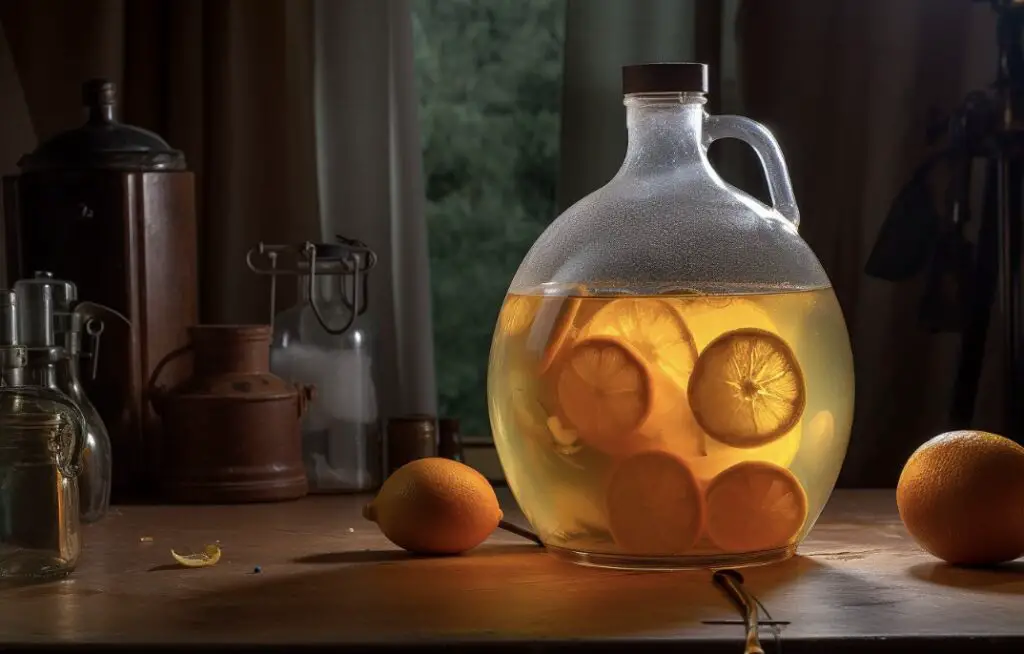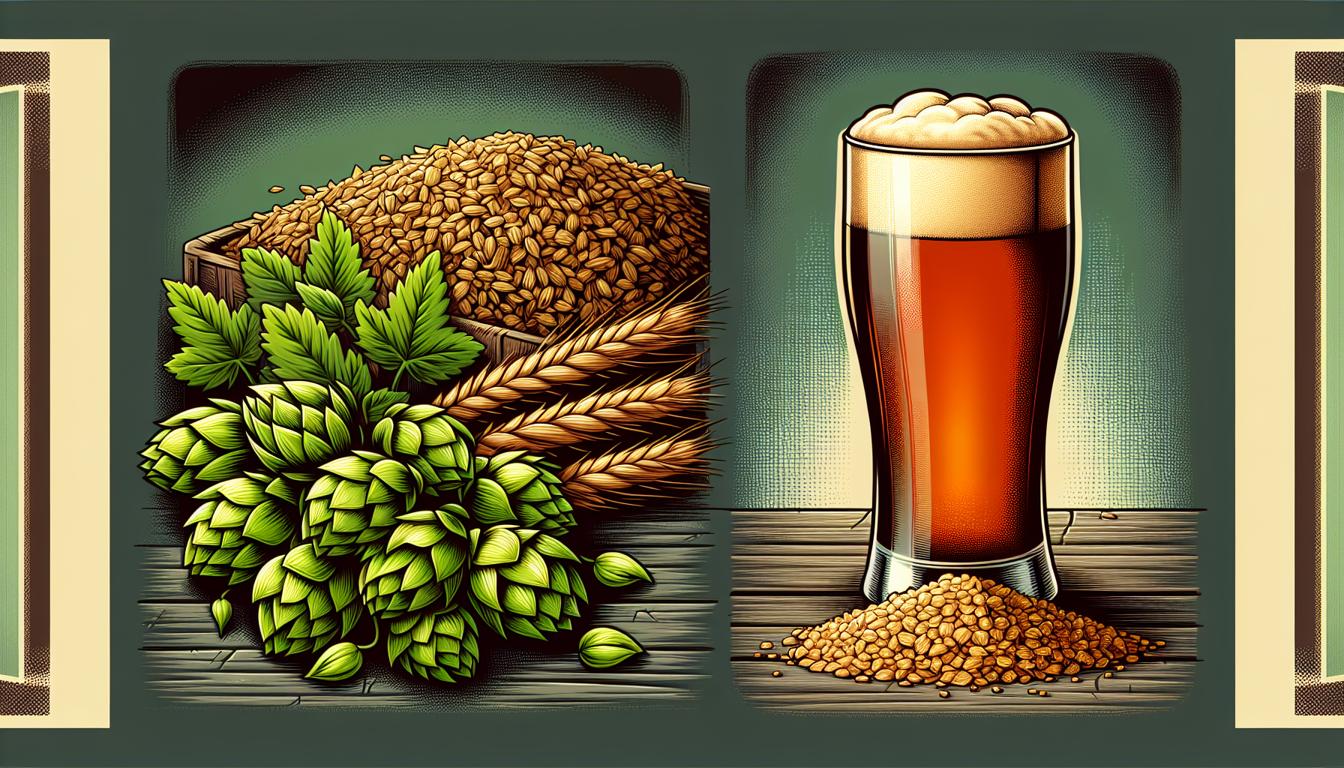Can oranges be turned into alcohol? The short answer is yes, oranges can be turned into alcohol through a process called fermentation.
As an experienced brewer, I have experimented with various fruits, including oranges, to create unique and delicious alcoholic beverages.
And whereas Orange wine or cider does not fall in my taste, the distilled alcohol from such a ferment can be very tasty. Therefore it is, not surprisingly, used in numerous liquors that you might know already!
In this blog post, I will share my knowledge and experience on how to make alcohol from oranges, the different types of alcohol you can create, and some helpful tips for a successful brewing experience.
What Alcohol are Made from Oranges?
Alcohol made from oranges offers a delightful and refreshing option for those seeking fruity and aromatic beverages. This section of the blog post explores various types of orange-based alcoholic drinks, their production processes, and interesting facts about these beverages.
Orange liqueurs are a popular choice, with Triple Sec being a key ingredient in cocktails like margaritas and cosmopolitans.
Cointreau, produced in France, is a well-known brand of Triple Sec. The production involves macerating orange peels in a neutral spirit, distillation, and the addition of sugar.
Another renowned orange liqueur is Grand Marnier, made from a blend of Cognac and distilled essence of bitter orange. The production process includes macerating orange peels, distillation, and blending with Cognac and sugar, resulting in a rich and smooth liqueur with a distinctive orange flavor.

Orange brandy, such as Laird’s Orange Brandy from the United States, infuses the flavor of oranges into brandy. The process involves macerating orange peels, distillation, and aging in oak barrels, producing a smooth and aromatic brandy with a delightful orange flavor.
Orange wine, also known as skin-contact white wine, is made from white grapes fermented with their skins, giving the wine an orange hue. While not made from oranges, certain grape varieties and the fermentation process can impart a slight orange flavor.
Orangecello is a variation of Limoncello, made from oranges instead of lemons. It involves macerating orange peels in a neutral spirit, mixing with simple syrup, and allowing it to rest. The result is a sweet and aromatic liqueur with a vibrant orange flavor, perfect for sipping or using in cocktails.
Various spirits like vodka, gin, and tequila can be infused with the flavor of oranges by adding orange peels or slices and letting them sit for a desired period. The resulting infusion adds a unique and refreshing twist to cocktails or can be enjoyed on its own over ice.
Orange-based alcohol finds its way into numerous cocktails, with popular examples including the Margarita, Cosmopolitan, and Sidecar. These cocktails demonstrate the versatility of orange-flavored alcohol and its ability to enhance drinks with a refreshing and fruity element.
To summarize, orange-based alcohol encompasses liqueurs like Triple Sec and Grand Marnier, orange brandy, Orangecello, and orange-infused spirits. These beverages offer delicious options for cocktails or standalone enjoyment. Additionally, the blog post includes ten interesting facts about orange alcohol, ranging from the role of Triple Sec in popular cocktails to the production processes of these beverages.
Fermentation of orange juice
Fermentation is the process of converting sugar into alcohol and carbon dioxide (CO2) using yeast. Yeast is a microorganism that feeds on sugar and produces alcohol and CO2 as by-products. This process is what turns fruit, like oranges, into alcoholic beverages.

Choosing the Right Yeast
There are many types of yeast available, and choosing the right one for your orange alcohol will have a significant impact on the flavor and quality of your final product.
Some common yeast strains used in fruit fermentation are champagne yeast, wine yeast, and ale yeast. Each strain has its own unique characteristics and will produce different results in your orange alcohol.
Preparing the Oranges
The quality of your oranges will directly affect the quality of your alcohol. Choose ripe, flavorful oranges with no signs of mold or rot. Organic oranges are a good option as they will not have any pesticides or artificial chemicals that could impact the fermentation process.
Washing and Sanitizing
Before you begin the fermentation process, it is essential to wash and sanitize your oranges to remove any dirt, bacteria, or other contaminants. Rinse the oranges thoroughly under running water and scrub the surface with a soft brush.
After washing, sanitize the oranges by submerging them in a solution of water and a sanitizing agent, such as Star San or a similar product. This step will help ensure a successful fermentation.
Creating the Orange Mash
Extracting the Juice
To create the orange mash for fermentation, you will need to extract the juice from the oranges. This can be done by hand using a citrus juicer or with an electric juicer. The goal is to collect as much juice as possible, while minimizing the amount of pulp and seeds.
Adding Sugar
The natural sugar content in oranges may not be sufficient to produce a high alcohol content in your final product. To increase the potential alcohol content, you can add sugar to the orange juice. This can be done by dissolving granulated sugar in warm water and then adding it to the juice.
The amount of sugar to add will depend on your desired alcohol content and the specific yeast strain you are using.
Fermentation Process
Adding Yeast and Nutrients
Once you have prepared your orange mash, it’s time to add the yeast and any necessary nutrients. Follow the instructions on the yeast package for the correct amount to add, and be sure to rehydrate the yeast if required. Adding yeast nutrients, such as Fermaid-K or Diammonium Phosphate (DAP), can help ensure a healthy fermentation.
Monitoring the Fermentation
During the fermentation process, it is essential to monitor the progress and make any necessary adjustments. Keep an eye on the temperature, as most yeast strains have a specific temperature range for optimal fermentation. Additionally, you should check the specific gravity of the orange mash using a hydrometer to track the alcohol content.
Aging and Clarification
Aging the Orange Alcohol
After the fermentation process is complete, it’s time to age your orange alcohol. This step can greatly improve the flavor and overall quality of the final product. Aging can be done in glass or plastic containers, but using oak barrels will add unique flavors and complexity to the orange alcohol.

Clarifying the Alcohol
After aging, it is important to clarify the orange alcohol by removing any remaining yeast, pulp, or other sediment. This can be done by racking the alcohol into a clean container or using a fining agent, such as bentonite or gelatin, to help settle any remaining particles.
Bottling and Enjoyment
Bottling the Orange Alcohol
Once your orange alcohol is aged and clarified, it’s time to bottle it for consumption. Choose appropriate bottles for your type of alcohol (wine bottles, beer bottles, etc.), and be sure to use airtight seals or corks to prevent oxidation.
Enjoying Your Orange Alcohol
Finally, it’s time to enjoy your homemade orange alcohol! Remember that different types of orange alcohol may benefit from additional aging in the bottle, so be patient and allow your alcohol to mature and develop its full flavor profile.
Conclusion
Can oranges be turned into alcohol? Absolutely! With a bit of patience, preparation, and the right techniques, you can create a unique and delicious alcoholic beverage from oranges. To recap, here are the key steps and facts about making alcohol from oranges:
1. Fermentation is the process of converting sugar into alcohol using yeast.
2. Choose the right yeast strain for your desired type of orange alcohol.
3. Select high-quality, ripe oranges for the best flavor.
4. Wash and sanitize your oranges before beginning the fermentation process.
5. Create an orange mash by extracting the juice and adding sugar.
6. Add yeast and nutrients to the orange mash and monitor the fermentation process.
7. Age and clarify the orange alcohol to improve flavor and clarity.
8. Bottle your orange alcohol and allow it to mature for the best taste.
9. Enjoy your homemade orange alcohol with friends and family.
So go ahead, give it a try, and enjoy the satisfying process of turning oranges into alcohol. Cheers!
FAQs
Can you make alcohol from citrus fruit?
Yes, alcohol can be made from citrus fruit through the process of fermentation. The natural sugars in the fruit are converted into alcohol by yeast. However, the alcohol content will be relatively low compared to other sources such as grains or grapes.
Can I ferment oranges?
Yes, oranges can be fermented, but the process is not common and may not result in a desirable flavor. It is more common to ferment oranges in the form of orange juice or zest, rather than the whole fruit. Fermenting oranges can produce a tangy, slightly alcoholic flavor and can be used in recipes such as marmalade or as a marinade for meats. However, it is important to follow proper fermentation techniques to ensure safety and avoid spoilage.
What fruits can be turned into alcohol?
Many fruits can be turned into alcohol, including grapes (for wine), apples (for cider), pears (for perry), plums (for plum brandy), and berries (for fruit liqueurs).
Can an orange ferment?
Yes, oranges can ferment. The sugars in the fruit can be converted into alcohol and carbon dioxide by yeast or bacteria. However, this process usually requires specific conditions and is not a common occurrence.
What does fermented orange taste like?
Fermented orange can have a tangy, slightly sour taste with a hint of sweetness and a distinct fermented flavor.
Can you make alcohol out of oranges?
Yes, alcohol can be made out of oranges through a process called fermentation. The sugar in the oranges is converted into alcohol by yeast in the presence of water and a controlled environment. However, the resulting alcohol content is typically low and the process can be time-consuming and difficult to control.




-recipe.jpg)